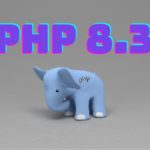What is the projected release date for PHP 8.4?
Although the 8.3 version is coming out very soon, we don’t have a release date yet for version 8.4, but it’s expected to be towards the end of 2024.
What’s new in PHP 8.4?
This version is not yet fixed, this article will be updated regularly.
A new JIT implementation based on IR Framework
The proposal introduces a new JIT via an independent IR Framework for PHP. It consolidates back-ends, enabling IR construction and machine-independent optimizations. Impacting core PHP developers, it remains self-contained, making minimal changes to the existing codebase and providing potential for collaboration with external experts.
XML_OPTION_PARSE_HUGE
Introducing a new parser option, XML_OPTION_PARSE_HUGE, via xml_parser_set_option in PHP, specifically for libxml2 usage. Enabling this boolean option will handle parsing larger documents, preventing denial-of-service by default. Internally, this option passes XML_PARSE_HUGE to libxml2, alleviating parse errors with large documents. Note that this option doesn’t affect libexpat and parallels LIBXML_PARSEHUGE for SimpleXML and DOM extensions.
xml_parser_set_option($parser, XML_OPTION_PARSE_HUGE, true);Increasing the default BCrypt cost
PHP’s password_hash default BCrypt cost has remained unchanged for 11 years since its introduction in PHP 5.5. This variable cost factor in BCrypt aims to adapt to growing processing power and cracking speeds, prompting a review of the default value after this significant duration.
The proposed update raises the default BCrypt cost from 10 to either 11 or 12, the final decision pending a secondary vote.
To learn more, visit: https://wiki.php.net/rfc#php_84
Recalling PHP: A Brief Overview
PHP (Hypertext Preprocessor) is a highly popular and widely used programming language for server-side web development. Here is a brief overview of PHP:
What is PHP? Server-side language: PHP is primarily used to create dynamic and interactive web pages. It runs on the server-side, generating dynamic web content before sending it to the web browser.
Open source: PHP is an open-source language, meaning it is free and has a vast community of developers contributing to its evolution.
Features of PHP: Integration ease: It can be directly integrated into HTML code, making the creation of dynamic web pages relatively straightforward.
Compatibility with various databases: It is compatible with most databases such as MySQL, PostgreSQL, Oracle, etc.
Large community and documentation: PHP has a vast community of developers, forums, and abundant documentation, facilitating learning and issue resolution.
Enhanced Typing in PHP: Improving Development and Safety:
PHP has significantly enhanced its typing system, providing more advanced features to ensure better data type management. Introducing features like strict type declarations, PHP strengthens its reliability by enabling developers to explicitly specify expected data types, thereby enhancing the quality and safety of PHP-developed applications.
PHP has undergone significant evolution in recent years. For those unfamiliar with newer versions, especially if you haven’t worked with PHP since older iterations like PHP 4 or 5, the extensive changes might come as a surprise, rendering the language almost unrecognizable.











Leave a Reply